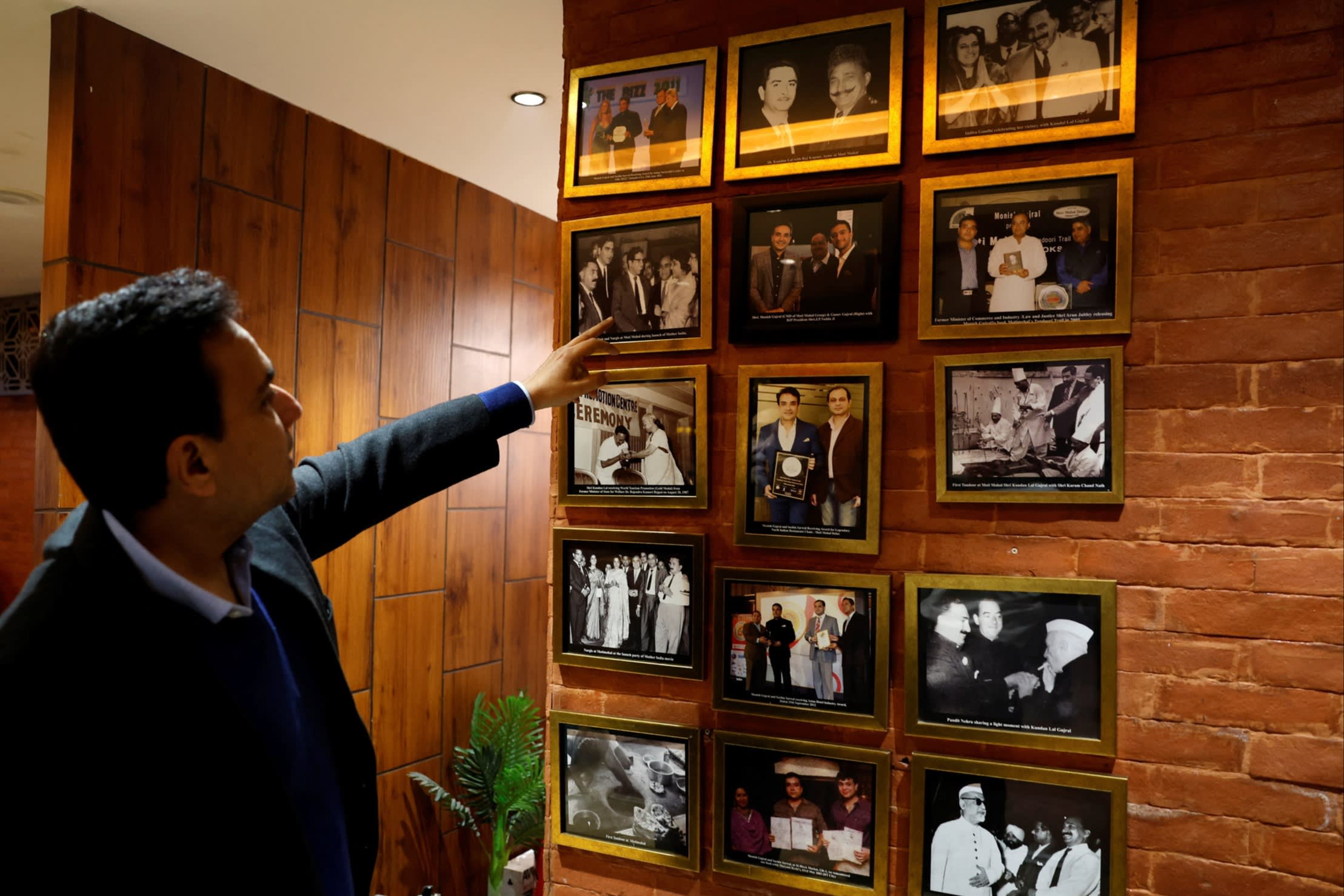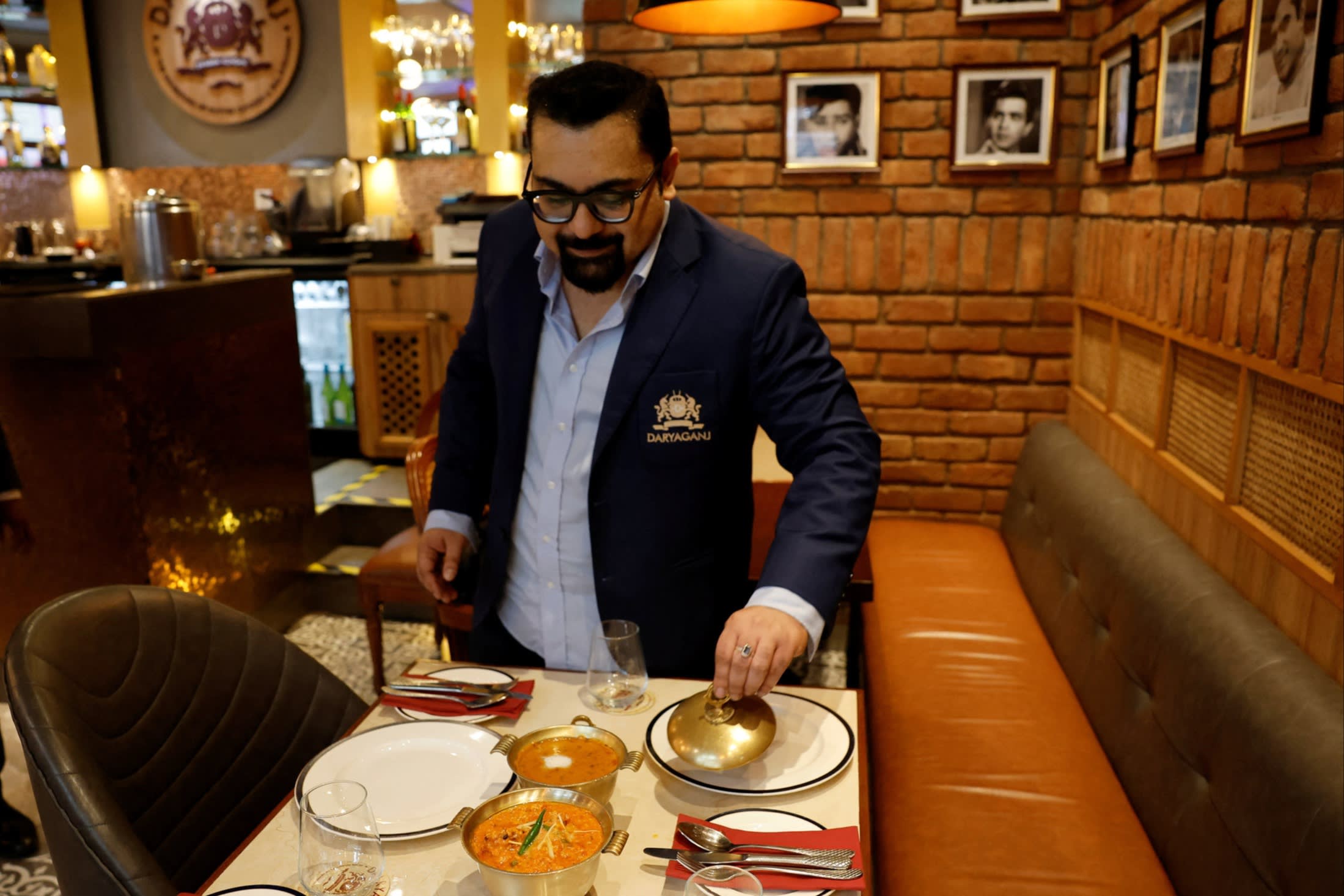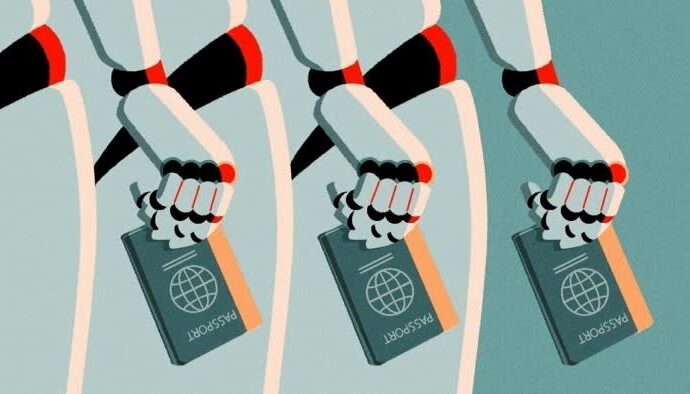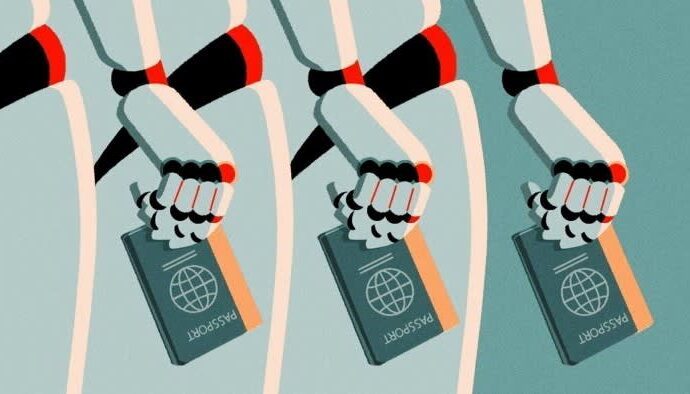Unlock the Editor’s Digest for free
Roula Khalaf, Editor of the FT, selects her favourite stories in this weekly newsletter.
In the years following the traumatic 1947 partition of India, two Hindu refugees roasting naan and kebabs at a restaurant in Delhi’s old city struck gastronomic gold. Their apparent innovation — to simmer the tandoori chicken in a creamy tomato gravy to make what is today known as butter chicken — became a staple of Indian menus worldwide.
The question of who exactly dunked the meat into the sauce first has now, almost a lifetime later, become the subject of a Delhi High Court case that has divided India’s culinary scene.
Moti Mahal, a restaurant chain run by the descendants of Kundan Lal Gujral, last month filed a lawsuit demanding that Daryaganj — a chain started in 2019 by heirs of his erstwhile partner Kundan Lal Jaggi — stop calling itself the inventor of butter chicken. The suit also challenges Daryaganj over the origins of dal makhani, a rich lentil dish, which is another of its supposed innovations.
Moti Mahal claims that it was Gujral who first came up with the dishes in the 1920s in his native Peshawar, in modern Pakistan. “It’s a matter of pride,” Monish Gujral, the owner, tells me. “Our customers have been coming to us for the last 100 years.”
Daryaganj shot back that Jaggi managed the kitchen and was the one behind the recipes. Co-founder Amit Bagga, who was last year featured on an Indian spin-off of American investment reality show Shark Tank, said Daryaganj had trademarked the phrase “inventors of butter chicken and dal makhani”.

The case has sparked amusement among foodies, who question the wisdom of trying to claim a dish that has been continuously adapted and reinvented by chefs globally, and dismissed it as a publicity ploy. “No one knows who created butter chicken,” says Sourish Bhattacharyya, a food writer. “There’s a lot of pressure on people to start claiming this is theirs and that is theirs. You start believing your own marketing story.”
Yet it is the latest twist in a wholly serious battle for commercial control of one of India’s most important exports: its world-famous food. Many still recoil at the memory of how Ricetec, a Texan company, secured a US patent for basmati in 1997, triggering a dispute with New Delhi. The states of West Bengal and Odisha also fought over who invented the dessert rasgulla — a battle that ended in 2019 after both had secured geographical indication tags for their respective variations.
That’s without even starting on British-Indian innovations like chicken tikka masala, a spicier cousin of butter chicken that is absent from subcontinental menus. A Pakistan-born chef in Glasgow claimed to have invented the dish by pouring tomato soup over chicken kebabs in the 1970s, leading to an unsuccessful campaign for protected status under EU law. A similar bid in Birmingham to secure the rights to balti also failed.
The story of butter chicken can be emotive, evoking painful memories of the partition that followed British rule. Refugees from what is now Pakistan brought with them tandoor ovens previously unfamiliar in cities like Delhi, according to food historian Anoothi Vishal, transforming the Persianised cuisine of the Mughal court into what we today call north Indian food.

Butter chicken and dal makhani were “everybody’s favourite when we used to go out and eat”, says Manish Mehrotra, the chef behind fine-dining chain Indian Accent. One of Mehrotra’s own contributions to the canon was to start serving kulchas, a flatbread, stuffed with butter chicken, a formula he says is now being replicated. “There’s no fixed recipe that anyone can say is the authentic recipe,” he said.
The dispute may get more confusing, with a third Delhi restaurant now staking its claim. The owners of the original Moti Mahal outlet, which was sold to another family in the 1990s but still operates under the name, are threatening their own lawsuit.
“It’s a false dispute for both of them,” Blooty Chadha says when I visit the restaurant, decked with signage asserting its own recipe ownership, off a courtyard in the frenetic old city. “They both cannot claim to be the inventors of butter chicken and dal makhani, because the rights are with us.”


